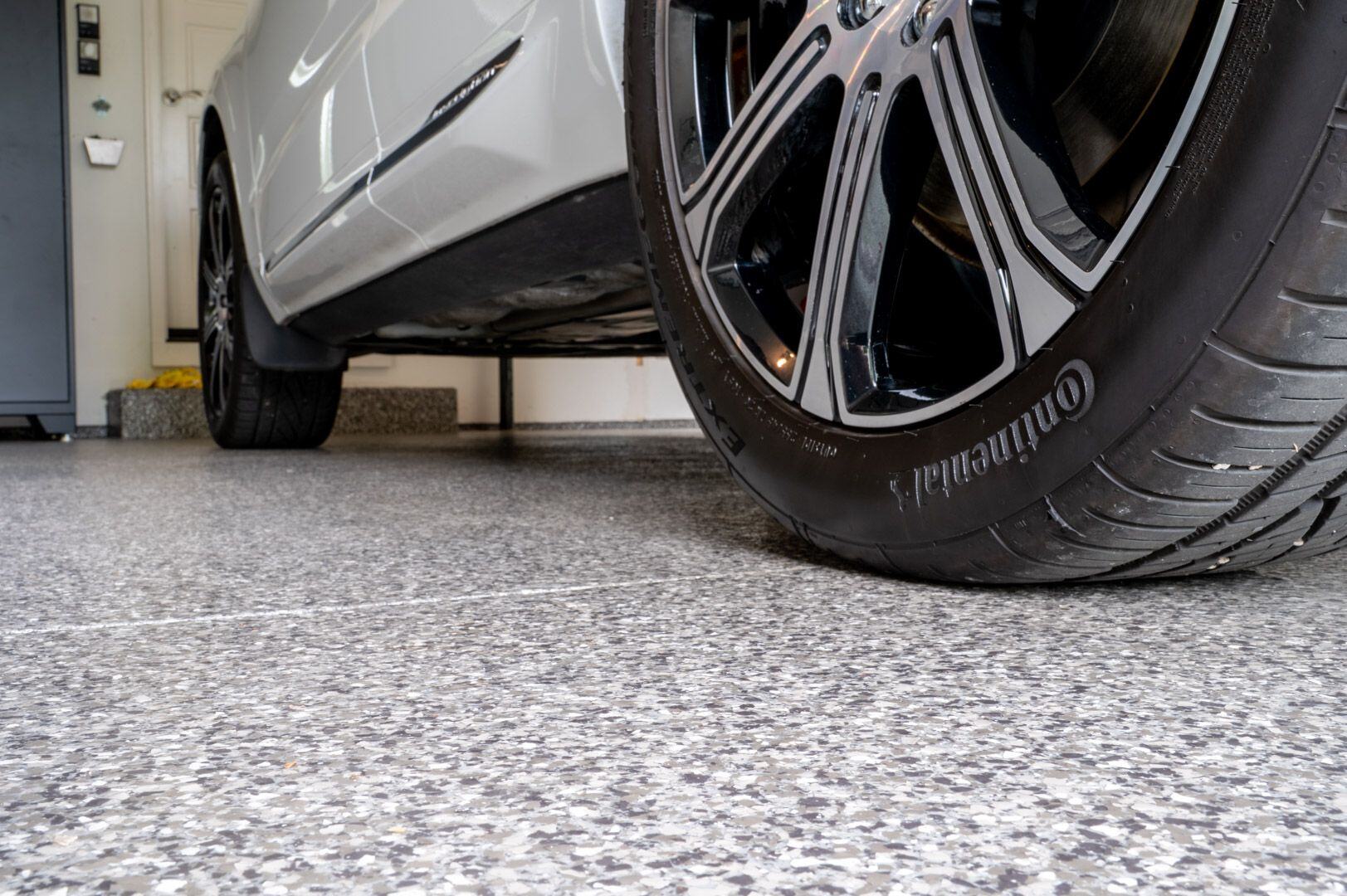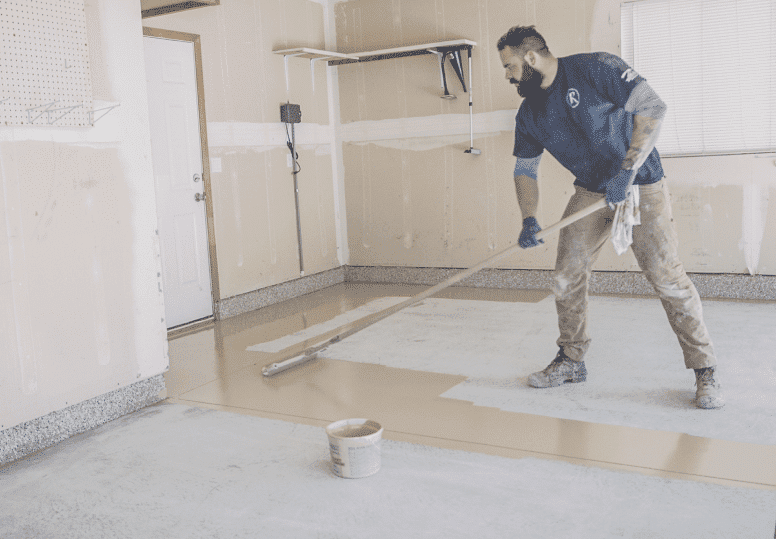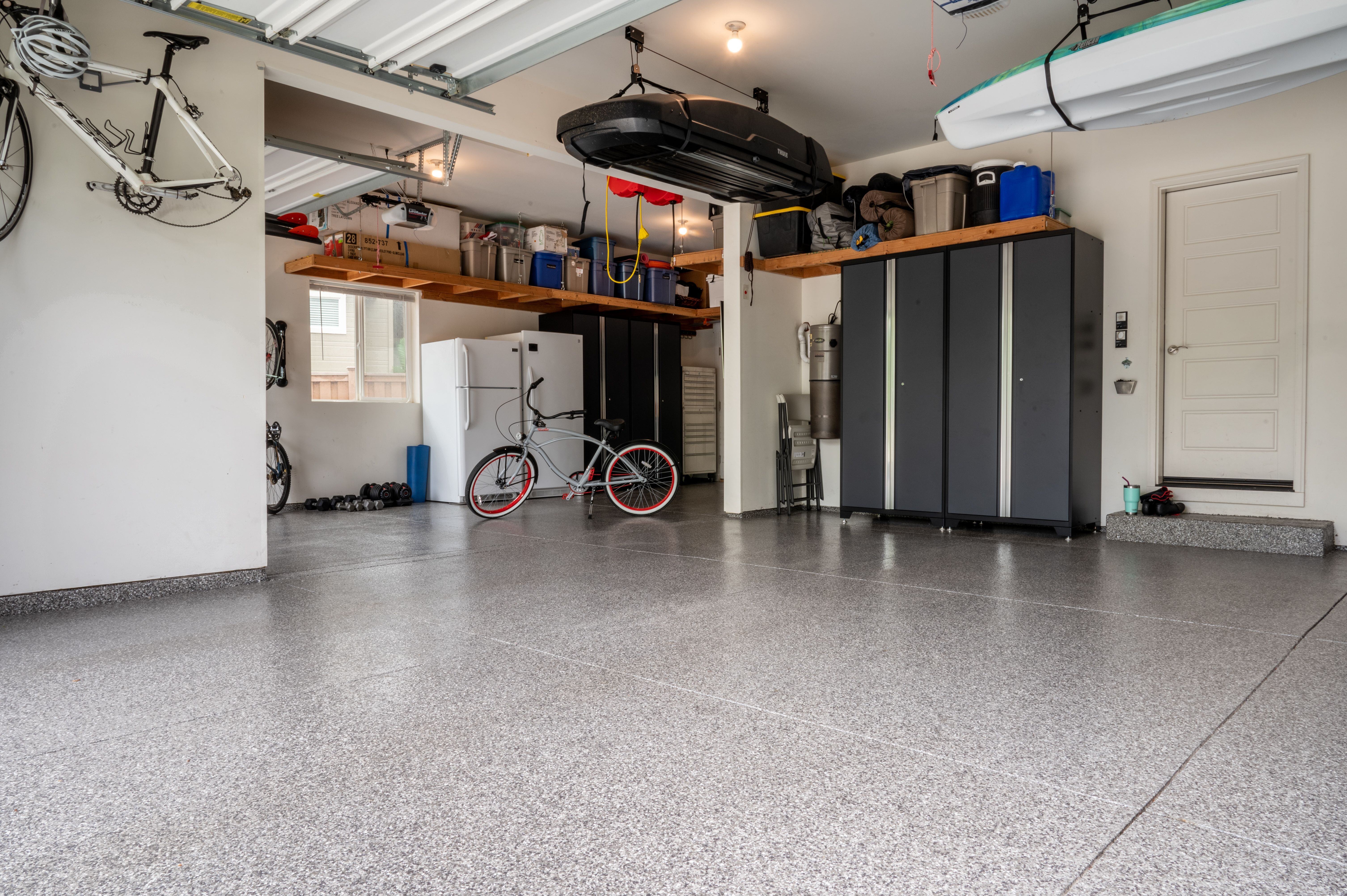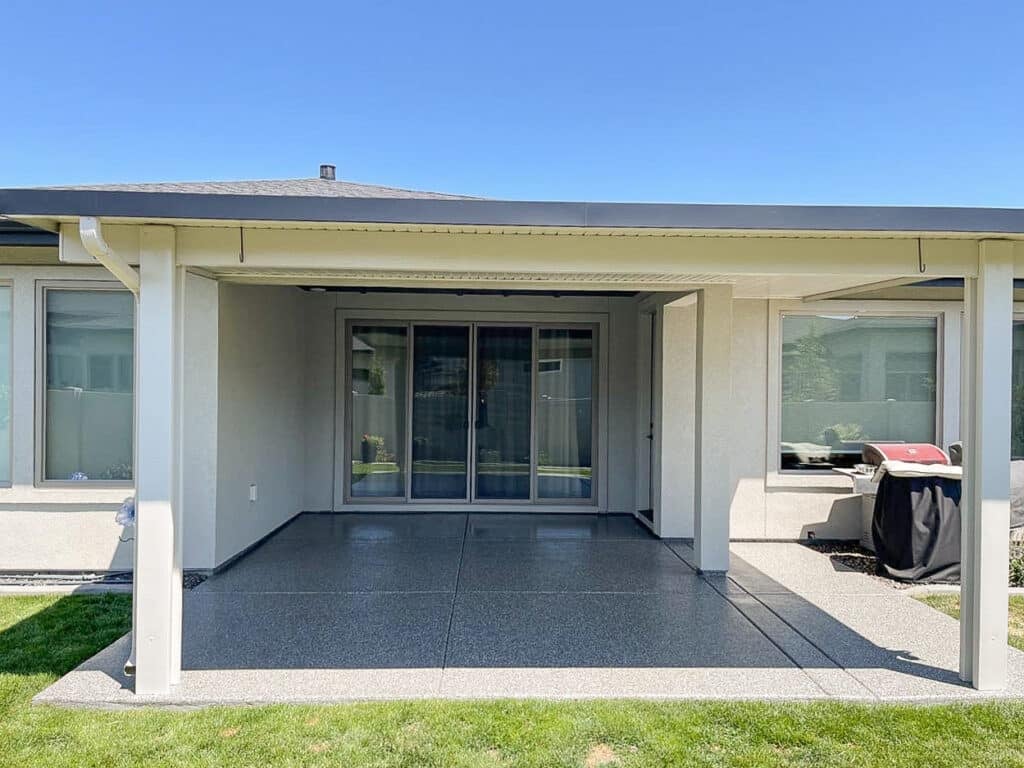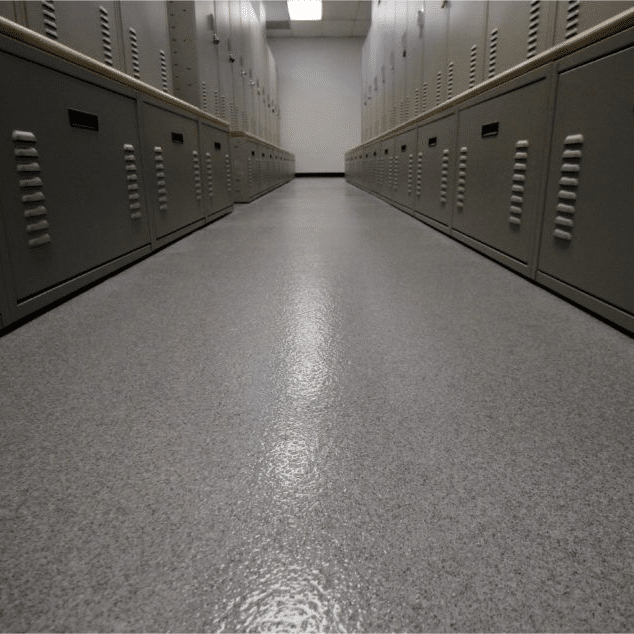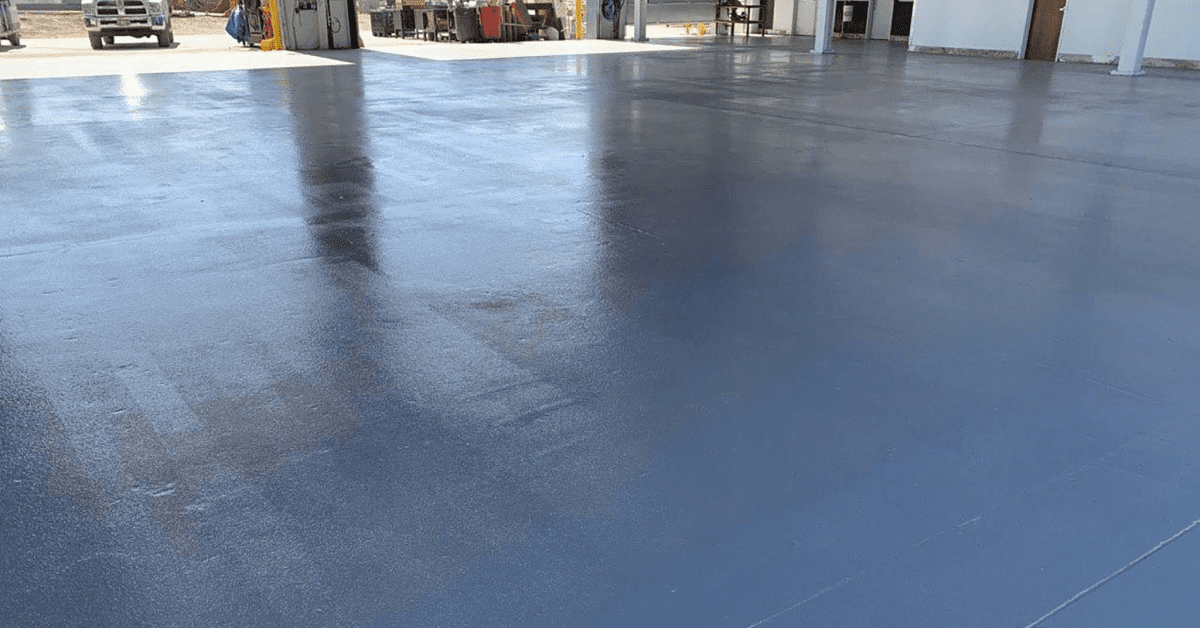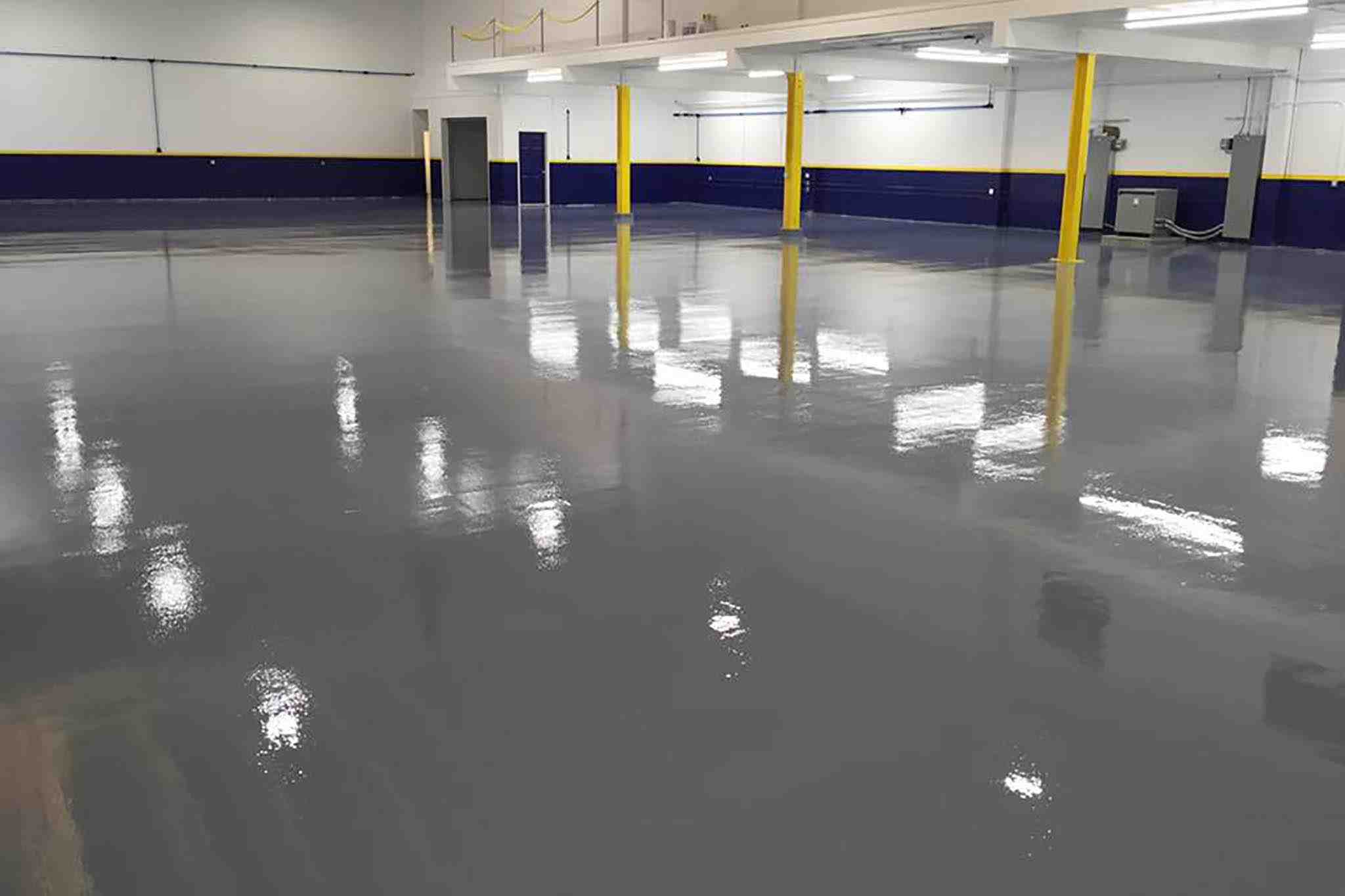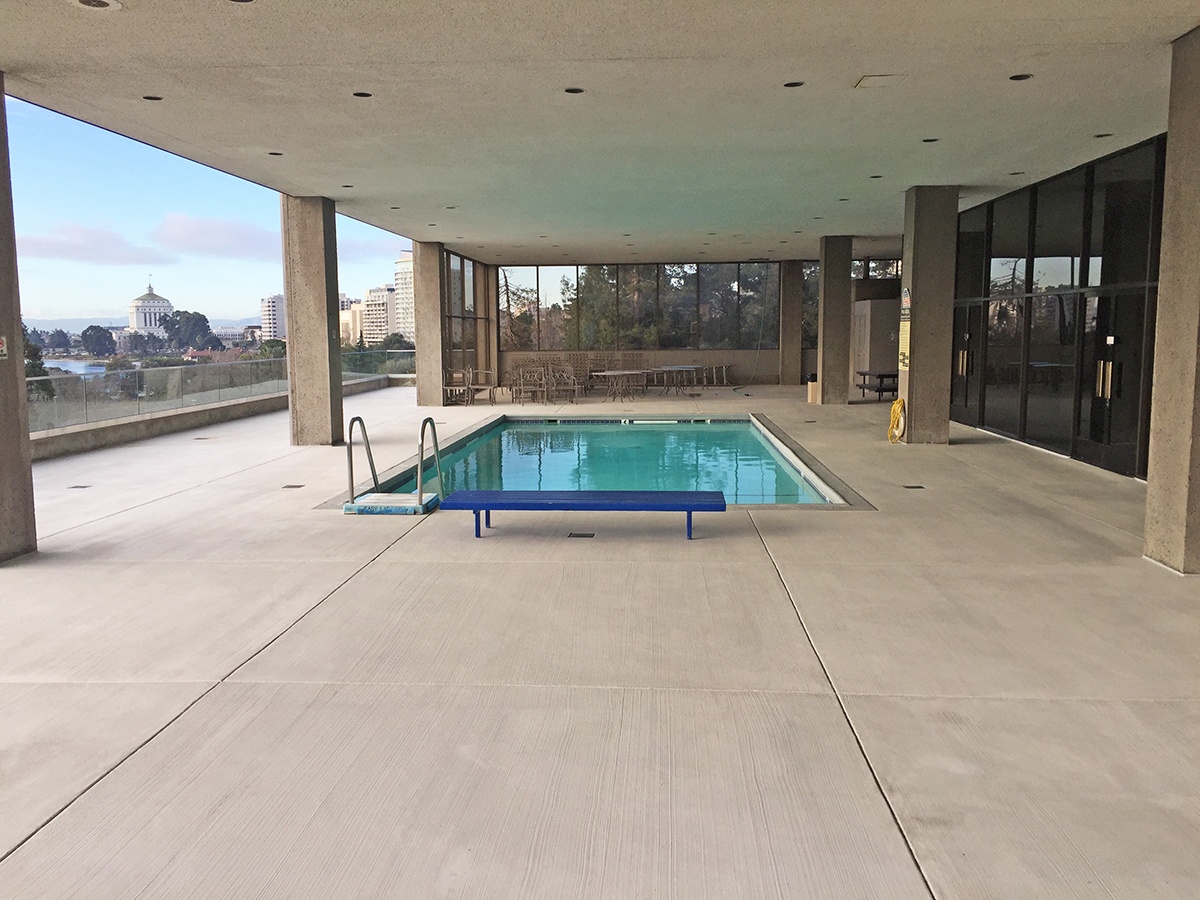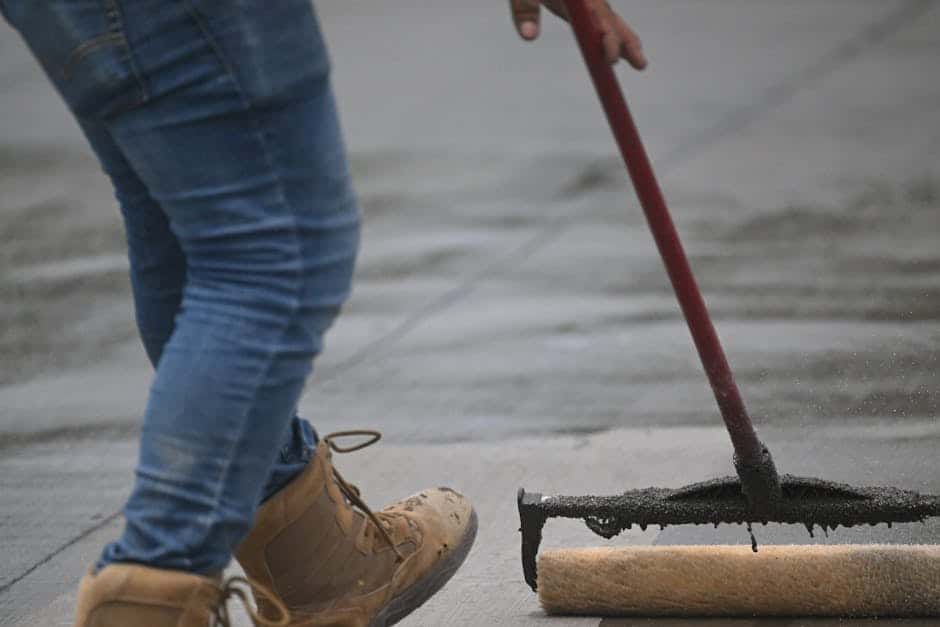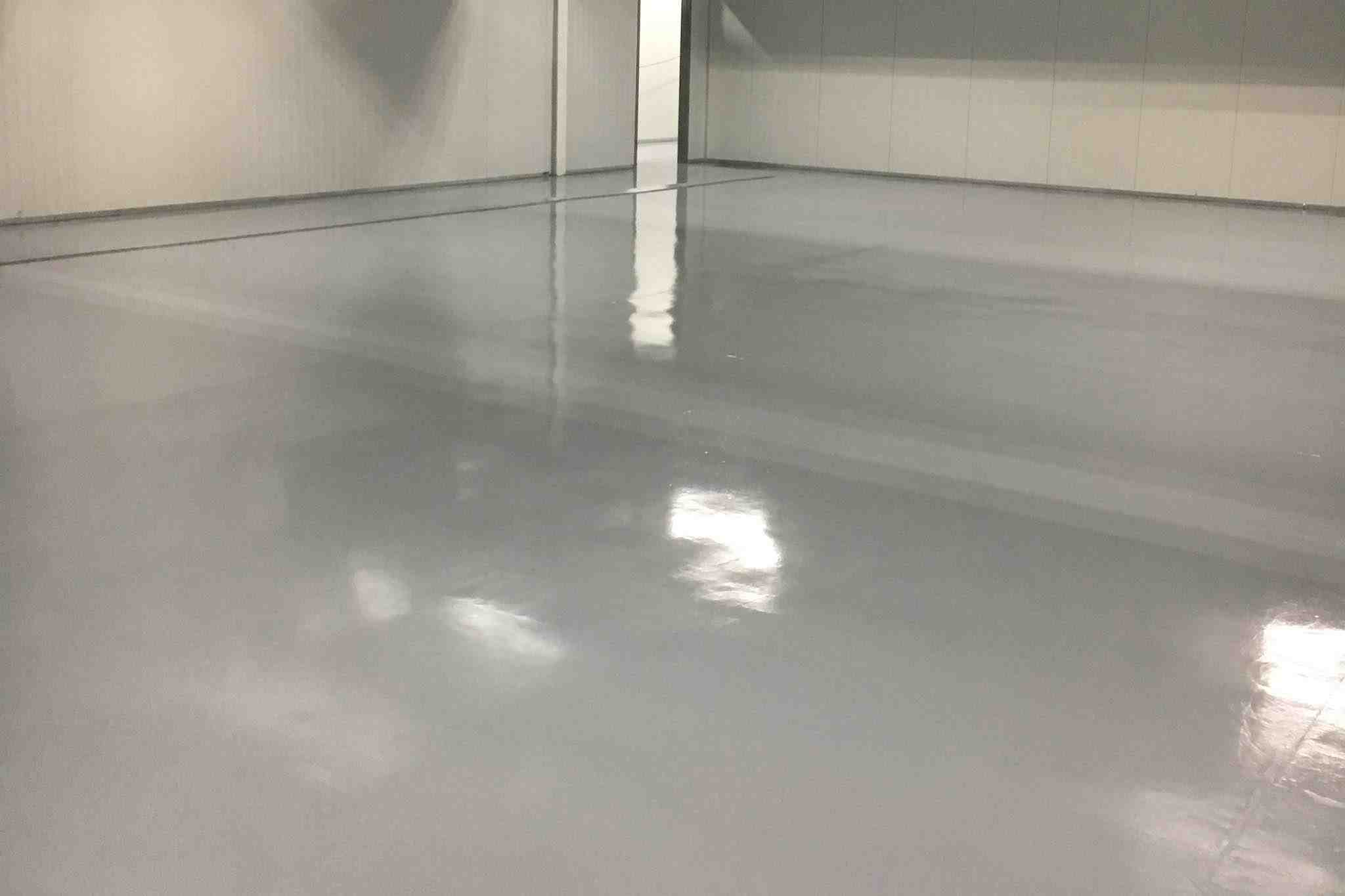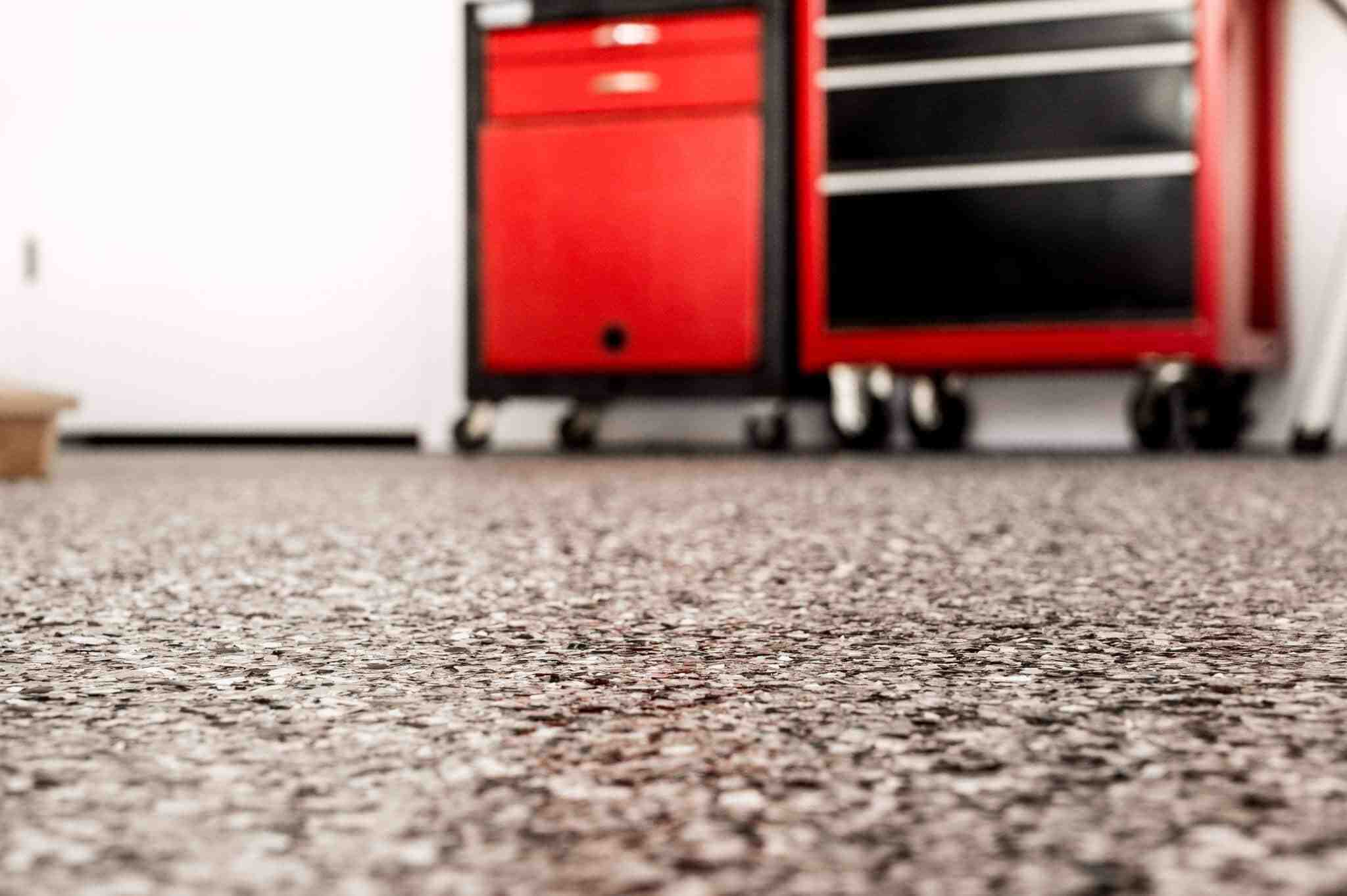Is Sealing Concrete Worth It? Most Commonly Asked Questions
November 17th, 2023
5 min read
By Jud Masters

While concrete driveways, garage floors, and patios may seem indestructible, untreated concrete is surprisingly vulnerable to cracks, stains, and other costly damage. Are you worried about how to keep your concrete looking great and lasting longer? Most people are surprised at how affordable and valuable sealing concrete can be. Sealing concrete is a simple, cost-effective way to protect your investment and extend the life of your concrete surfaces.
At Roe Painting, we’ve spent over two decades protecting thousands of driveways, patios, pool decks, garages, and more, with top-quality concrete sealers and coatings. In this article, you’ll discover everything you need to know about concrete sealers–from what they are, how they work, and the differences between sealers and coatings. You’ll leave ready to decide if sealing is the right solution for you.
Does Concrete Need to Be Sealed?
Untreated concrete is strong, but it’s also porous. That means there are millions of tiny holes where liquids and chemicals can sneak in and degrade the strength of the concrete. Even water has the ability to break down concrete.
Things That Will Damage Your Concrete
The freeze-thaw cycle wreaks havoc on concrete surfaces. This happens when outdoor temperatures dip above and below freezing temperatures. Snow and ice will melt, seep into the concrete, and refreeze. When the water refreezes, it expands and puts pressure on the concrete. This often results in cracking and spalling (flaking) concrete.
Ice melt can be a good way to help keep your driveway clear of ice and snow, but it can also be full of harsh chemicals that break down the top layer of your concrete. Avoid salts made of sodium chloride or calcium chloride, and opt for calcium magnesium acetate (CMA), magnesium chloride, or potassium chloride. Regardless of the type you use, apply sparingly and sweep off the excess to minimize exposure to your concrete.
Oil and chemical stains definitely don’t look great, but the acid in those liquids can literally eat through concrete. If you have cars that leak or DIY projects that put your garage floors at risk of chemical spills, sealing them could protect them and help them last longer.
Benefits of Sealing Concrete Surfaces
The good news is that concrete sealer is a great preventative against all these elements that seek to destroy your concrete surfaces. Concrete sealer is relatively cost-effective for protecting driveways, garages, patios, and walkways. It also works well for interior concrete floors, like in shops and warehouses. These are just some of the benefits of sealing your concrete:
- Increased protection against damage
- Stain resistance
- Enhanced durability
- Improved appearance
- Reduced dusting and sweeping
- Easier maintenance
- Mold and mildew protection
- UV resistant
High-quality, professional-grade penetrating concrete sealers are a simple way to slow down the degradation of your concrete. Use it anywhere you want to seal to protect concrete surfaces from water, stains, spills, sun, or other damage–inside or outside.
What is the Process for Sealing Concrete?
To apply a concrete sealer, start by removing all dirt, dust, debris, and stains that you can. Using a pressure washer and degreaser can help speed up the process and make it more effective. Then allow the surface to dry completely.
To prep your area, mask off the edges and walls that you do not want to seal. If your concrete has cracks, repair those first. This will help you achieve a smoother finish. Then, read the instructions carefully for applying your desired sealer.
Using a roller, hand pump sprayer, or brush, apply the sealer evenly in thin coats, following the manufacturer’s recommendations for thickness. Then, allow the first coat to dry completely (usually a few hours) before applying a second coat if needed.
Concrete sealer needs to cure before it reaches maximum durability, which can take anywhere from 24 to 48 hours. Depending on your sealer, you may be able to walk on the surface after a few hours, but check the manufacturer’s recommendations. We generally recommend light foot traffic for the first several hours and avoid driving on the surface for at least 24 hours.
Once completed, if it looks like you didn’t do anything to your concrete, you did a great job! Penetrating sealers don’t alter the appearance of concrete or make them shiny. This also means they won’t build a film or flake over time. A proper application looks like ordinary concrete, but it is reinforced and protected from moisture and UV damage.
It might feel like it at first, but sealing concrete is not the same as painting. While paint can protect the underlying surface, it ultimately just sits on top of whatever surface it is covering. Concrete sealers, on the other hand, should penetrate and fill porous surfaces, preventing substances from getting in and causing damage. This is why proper prep work and careful application are important to maximize the effectiveness of your concrete sealer.
Best Products for Sealing Concrete
In most cases, the price will determine the quality of the sealer you choose. Water-based concrete sealers are available at any big box store and can be easily applied by homeowners. While they are better than no sealer at all, there are better options out there. Professional-grade, solvent-based sealers that can be purchased from a paint supplier are much higher quality and will last longer.
A good example of a high-quality concrete sealer would be Saltguard by Prosoco. Saltguard is a solvent-based, general-purpose, silane/siloxane water repellent and chloride screen for concrete and masonry. Saltguard works well on horizontal and vertical surfaces to protect them from moisture and chemicals.
If you’re working on sealing interior concrete surfaces, we recommend Prosoco Concrete Protector SB, which is solvent-based and penetrating. It will provide water, oil, and stain repellency for every kind of concrete floor. It is low-odor and VOC-compliant.
What are Solvent-Based Sealers?
Most homeowners don’t like to mess around with solvent-based products because of VOCs. VOC stands for volatile organic compound—these materials release strong, potentially harmful odors. When working with them, it is critical that you have proper ventilation. This can be tricky if you are working in a garage or basement. From application to cleanup, solvent-based products require more attention for safety and proper usage. This is why most homeowners rely on professionals in these situations.
How Much Does It Cost to Seal Concrete?
If you seal your concrete yourself, the only costs will be the materials and supplies (if you need them). Depending on the quality of the sealer you choose, you’ll spend $30 to $50 per gallon. One gallon generally covers about 200 square feet, but check your sealer to make sure you purchase enough for your space. Additional costs could come up if you need to repair cracks before applying your sealer.
If you hire a professional concrete coatings company to apply a higher-strength coating, you can expect to pay between $1 and $2 per square foot, depending on the sealer you choose and the total square footage.
What’s the Difference Between Concrete Sealers and Coatings?
Concrete sealers are a thin, invisible layer applied to the surface of the concrete to protect it from liquid and UV damage. While they are a great way to preserve and protect concrete surfaces, they are not the same as epoxy or poly-based concrete coatings.
Where concrete sealers are transparent, concrete coatings will transform the look of your concrete with different colors, styles, and designs. They can add functional properties like traction and chemical resistance. Coatings require a more in-depth application process with several layers and a more extensive preparation stage that includes grinding the concrete surface. Coatings are more expensive, but are the ideal choice for long-lasting, heavy-duty protection and customizable aesthetics. Concrete sealers are a great choice for boosting your concrete’s performance and helping it last for years to come in a cost-effective way.
What is the Downside?
All sealers will break down due to use and UV exposure. Reapplication should be done periodically (every couple of years or so). A good way to test whether your concrete sealer needs to be reapplied is the beading water test. If you splash water on the concrete and it still beads up and runs off, you are good to go. If it soaks in and darkens the concrete, the sealer has worn away or broken down. It’s time to reapply.
Choosing the Right Protection for Your Concrete
Protecting your concrete from cracks, stains, and long-term damage doesn’t have to be complicated or expensive. Whether you’re sealing your driveway, garage, or patio, applying a high-quality concrete sealer is one of the simplest ways to preserve its durability and appearance.
If you are looking for something other than concrete sealer, take a look at our guide on concrete coatings. Coatings are more expensive, but they are a longer-lasting solution to protecting concrete. They also offer the added advantage of being customizable with colors and designs.
Are you not ready to tackle sealing concrete on your own? Contact our professionals for a free in-home estimate to learn more about how we can install a high-quality sealer at an affordable rate.
Jud has been with Roe Painting since 2017 and in the painting industry as a whole since 1999. He has a passion for estimating and selling a wide variety of painting projects. As the son of two teachers, he loves to educate his customers on what they should expect in a proper paint job. As VP of Sales, he enjoys developing estimating programs and teaching and coaching his sales team to deliver a confident contracting experience for every customer.
Topics:
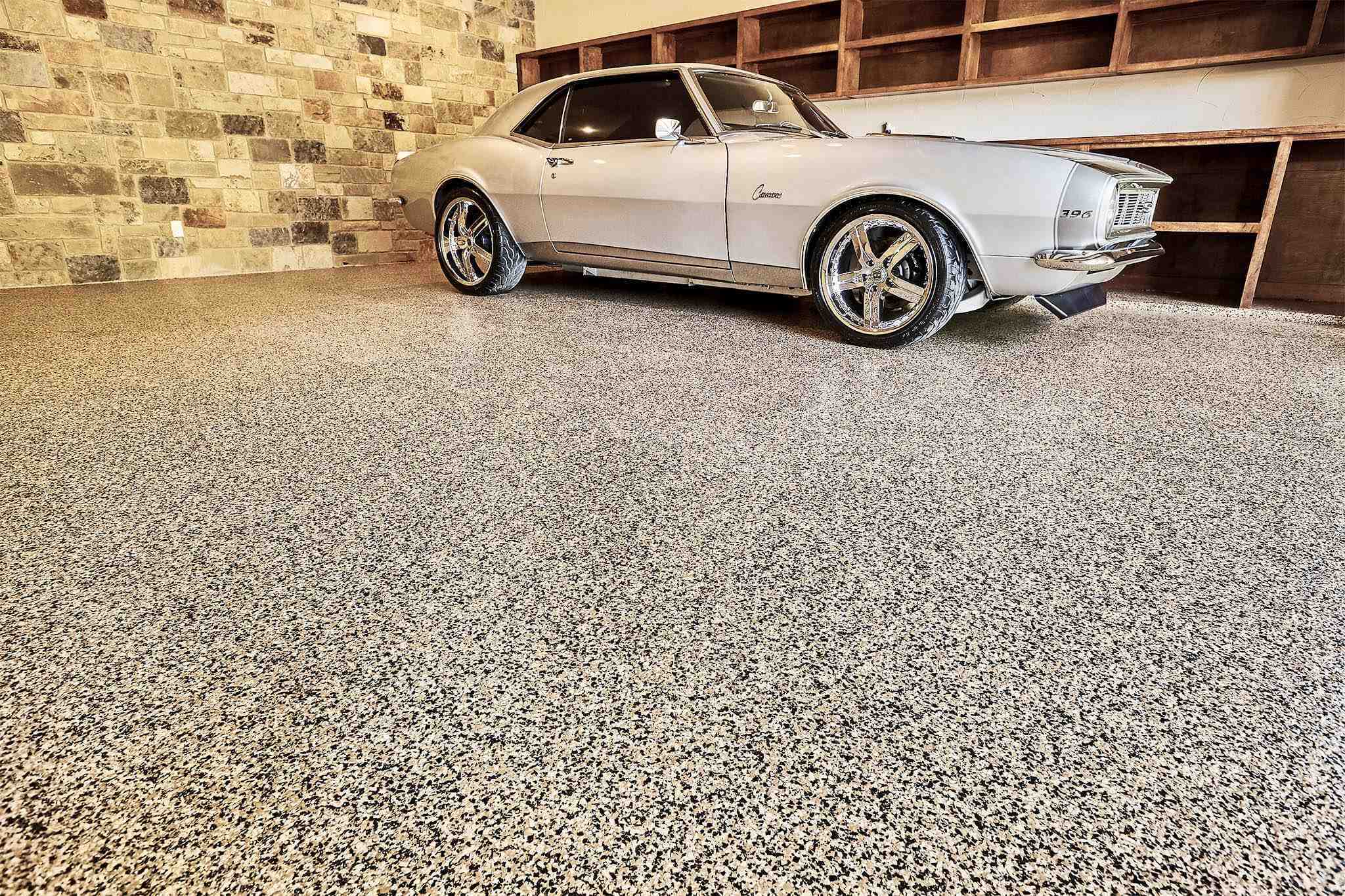
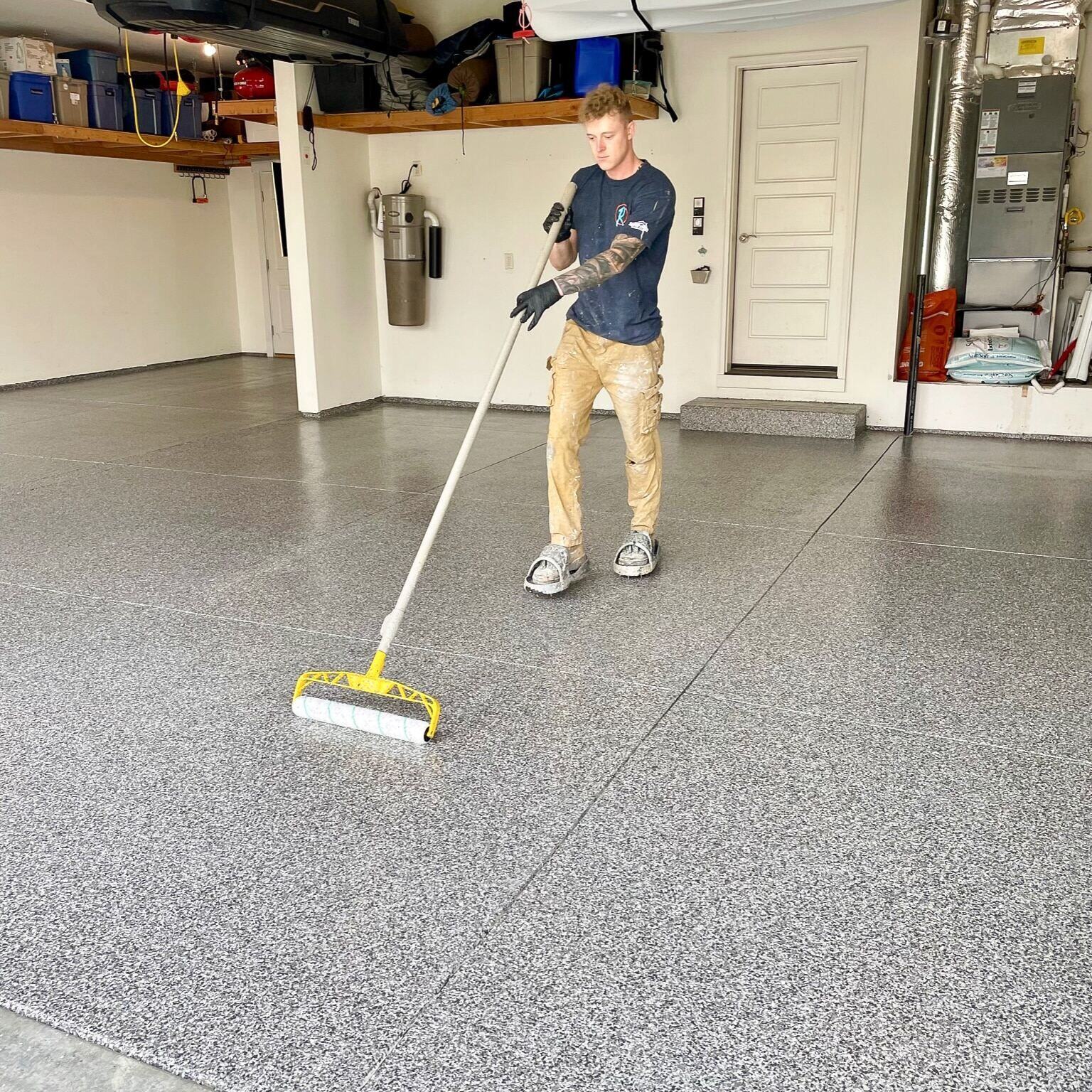
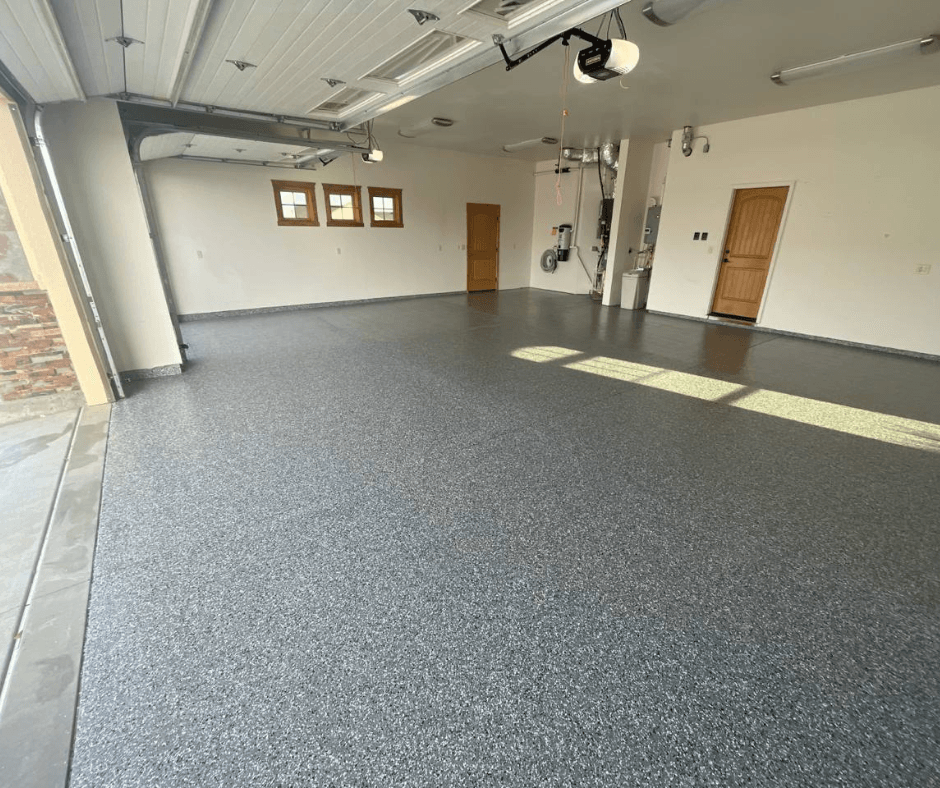

.jpg?width=750&height=1000&name=image001%20(1).jpg)


